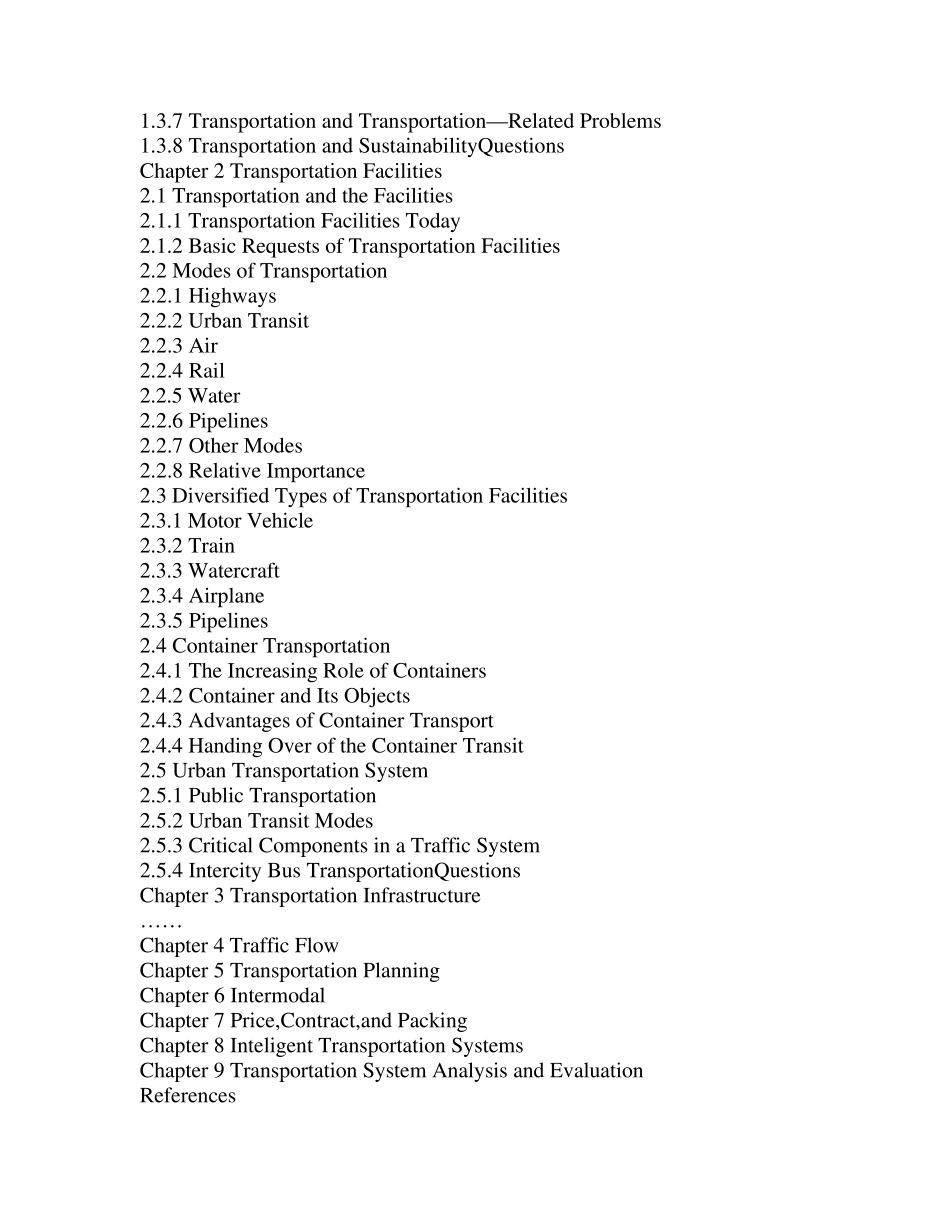交通运输业的性质,特点和作用 交通运输业的性质,特点和作用 (1)交通运输业是生产活动的重要组成部分; (2)交通运输业借助于工业革命实现了交通工具的机械化而成为"公用运输业"; (3)各种运输活动促进了运输业发展,运输业的发展推动了社会生产力的发展。 双语教材交通运输工程导论 本书以整个交通运输系统(包括铁路、道路、水运、航空、管道和城市交通运输系统)为对象,讨论现代社会运输的性质和作用、交通运输系统的组成以及各种交通运输系统的现状,各类载运工具的特点,以及各种交通运输系统的运行特性;分析交通流特性,探讨交通运输工程规划的基本原则与思路,交通运输基础设施、运输价格与合同管理、货运包装与标记、多式联运、智能交通系统的分析与评价等方面的问题。全书共分为9 章。 本书为物流工程、物流管理等专业的学科基础必修课教材,定位于交通运输工程、交通运输系统方面基础知识的介绍。本书不要求学生具备交通设施设计的专业能力,而是要在了解交通系统的基础上,学会分析交通系统的通行能力、性能特征、安全保证、规划调度等,为物流系统、社会系统的设计与集成打下基础。 本书可作为物流工程、物流管理、工业工程、交通工程等专业教材,同时还可供从事 物流、交通等相 关 专业工程技 术 人 员 学习 参 考 。 Chapter 1 Transportation Engineering Introduction 1.1 Transportation and Transportation Engineering 1.1.1 Definitions ofTransportation 1.1.2 What Is Transportation Engineering? 1.1.3 Transportation and People’S Life 1.1.4 Progress in Transportation 1.2 Transportation Engineering 1.2.1 The Field of Transportation Engineering 1.2.2 Definition of Transportation Engineering 1.2.3 The Practice of Transportation Engineering 1.2.4 The Nature of Transportation Engineering 1.2.5 Civil Engineering Involvement in Transportation 1.3 Transportation System 1.3.1 Scope and Functional Organization of Transportation System 1.3.2 The Systems Approach 1.3.3 Overview of Transportation Systems Characteristics 1.3.4 Transportation Systems,Hierarchies,and Classification 1.3.5 Objectives and Constraints of Transportation Systems 1.3.6 Trans...


